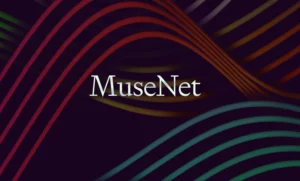Identity Review | Global Tech Think Tank
Keep up with the digital identity landscape.
As human creativity converges with AI, a profound transformation has swept through the world of music by way of the AI music generator. This powerful tool relies on deep learning, a type of machine learning where computers process data through the lens of the human mind, thus creating an ultra-realistic output. As the current strike involving thousands of writers and actors in Hollywood has shown, many creators can be negatively impacted by deep learning technology. This spans a wide variety of fields, with both positive and negative impacts of this new innovation no more prevalent than in the music industry – from nonconsensual AI-generated songs using artists’ voices, to bringing previously stowed demo tapes to life by isolating and clarifying vocals.
Deep learning, a subset of AI, has significantly influenced the development of AI music generators. It employs neural networks designed to mimic human decision-making processes, thus enabling AI to understand and replicate the patterns found in modern music. Learning from vast musical databases, here are three examples of AI-based music generators that produce original compositions that range from classical symphonies to modern pop songs.

The AI juggernaut OpenAI could not resist diving into the AI-music scene, as its newest venture MuseNet can compose in a multitude of styles and genres. It uses a deep learning model to generate up to four-minute musical compositions with ten different instruments, blending styles from country to Mozart to hip-hop.

This popular platform empowers users to effortlessly create custom-made, royalty-free music for various creative projects. Leveraging sophisticated algorithms with a vast library of musical styles, instruments, and moods, Amper allows content creators, artists, and business to tailor original soundtracks to match their unique vision and storytelling.
![]()
AIVA (Artificial Intelligence Virtual Artist) is an advanced AI-powered music composition tool. AIVA generates original music across various genres for multiple applications such as film scoring and advertising soundtracks. It allows customization based on genre, mood, and duration, making it a versatile tool for both professionals and novices. Additionally, AIVA serves as an educational tool for aspiring musicians, enhancing their understanding of various composition techniques.
As innovative as these developments may be, skeptics question whether AI can truly replace the emotional nuance and creativity inherent in human composition. While AI can learn patterns, it does not possess the emotive comprehension that fuels much of music’s stronghold on an individual. However, modern music has been criticized to be increasingly formulaic and repetitive, and AI has been able to replicate popular flows and become a nuisance to many artists.
Recently, Canadian superstar Drake has fell victim to the influence of this new innovation. In April of this year, an anonymous TikTok account uploaded an AI-generated song using Drake’s vocals titled “Heart on my Sleeve.” This instantly demonstrated the true capabilities of AI music generation, as the song amassed over 8.5 million streams in just a few days before being taken down by Universal Music Group. In a statement, the titan record label explained that the viral track was “infringing content created with generative AI.” This sent music-lovers into a frenzy, debating the moral and ethical implications of this new technology with endless possibilities. Videos of recreated songs using different artists’ vocals began to consume the majority of TIkTok users’ “For You” pages. From Bruno Mars singing songs by The Beatles to Michael Jackson belting out Ariana Grande records, fans could not get enough of hearing their favorite artists on some of music’s most iconic tracks.
This leads into one of the most heavily debated topics in the music industry right now concerning AI: copyright. Traditionally, music copyrights are granted to human composers, but the attribution becomes complex when music is composed by AI. The current legal framework does not adequately address these challenges, calling for an urgent need for new rules and regulations. As this phenomenon continues to scorch the industry, it is important to view AI not as a replacement, but as a tool that augments human capabilities, unlocking new possibilities and freeing musicians from repetitive and time-consuming tasks.
One of the most widely praised benefits of AI music generators is their ability to rekindle throwaway tracks and low-quality demos. The most relevant display of this technological miracle surrounds arguably the most famous music group of all time, The Beatles. Lead singer Paul McCartney revealed in an interview on BBC Radio last month that the infamous group’s final song has been completed with the help of artificial intelligence. The song, planned to be released later this year, used AI to isolate the late John Lennon’s vocals from an early demo. McCartney made it clear in the interview that the highly anticipated track has no aspect that is “artificially or synthetically created.” Instead, the group used AI-music generation as a tool for the once-impossible.
AI music generators are reshaping the way brands and media companies produce soundtracks for advertisements and movies. These companies are leveraging AI to create cost-effective, customizable, and unique background music, replacing costly licensing and production fees usually associated with music rights.
These new algorithms, like AIVA, have shown promising potential in assisting music students in their learning processes. By using AI to generate music compositions, students can analyze and learn various techniques, thus enhancing their understanding and creativity. Historically, musical education has always consisted of lectures on theory and technique, but with AI music generators, pupils are provided hands-on experience in creation.
The advent of AI music generators represents a transformative era in the industry, offering limitless possibilities, from aiding in education and streamlining commercial applications to rekindling archives of music legends. While challenges such as copyright issues and the preservation of humanity in music remain, these obstacles serve as opportunities to reassess our existing frameworks and advance in a way that marries creativity with innovation. It appears as though these new algorithms have barely scraped the surface of their potential, and as AI continues to evolve and learn from vast musical libraries, it promises to further deepen its impact.
After all, the resounding symphony of AI music generators is indeed a testament to human ingenuity. It is crucial to pinpoint unethical uses and form guidelines to help fine tune this tool, through which we can see its expansion from a mere gimmick to a collaborative partner in the music creation process.
ABOUT IDENTITY REVIEW
Identity Review is a digital think tank dedicated to working with governments, financial institutions and technology leaders on advancing digital transformation, with a focus on privacy, identity, and security. Want to learn more about Identity Review’s work in digital transformation? Please message us at team@identityreview.com. Find us on Twitter.
RELATED STORIES